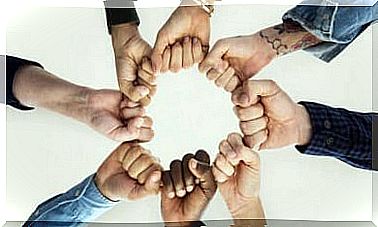The Rathus Assertiveness Test

The Rathus Assertiveness Test, developed by Dr. Spencer A. Rathus, is a test to measure your assertiveness. As a social skill, assertiveness is essential to your well-being.
Knowing how to express your thoughts and needs and defend your rights can improve your relationship with others and increase your self-esteem. While not everyone is born assertive, it is a skill you can develop.
To improve this skill, there are tips and strategies. Assertiveness can reduce violent behavior in people. In addition, it improves self-esteem, values and self-confidence. Without a good level of assertiveness, people need more time to develop these qualities.

The Rathus Assertiveness Test
The Rathus Assertiveness Test is still important and useful. Some people see themselves as very assertive, but sometimes this is confused with aggressiveness. The test can help distinguish between aggressiveness and assertiveness. Also, the Rathus test has another purpose as a training manual.
What does it measure?
The Rathus Assertiveness Test can measure:
- The assertiveness of a person.
- Whether the person usually stands up for their rights, ideas and needs.
- Whether a person is passive or aggressive.
- The information you get from the test will help you know which areas to work on. For example, someone who has little assertiveness due to his social anxiety.

What are the questions of the Rathus Assertiveness Test?
The Rathus test consists of thirty questions with six possible answers, ranging from very characteristic to me to very uncharacteristic. The questions, taken here from Rathus, 1973, are:
- Most people seem to be more aggressive and assertive than I am.
- I’ve been hesitant to make or accept dates because of shyness.
- When the food served in a restaurant is not to my satisfaction, I complain about it to the waiter or waitress.
- I’m careful not to hurt other people’s feelings, even when I feel like I’ve been hurt myself.
- When a salesperson has gone to great lengths to show me a product that isn’t quite right, I find it hard to say “no.”
- When someone asks me to do something, I absolutely want to know why.
- There are times when I’m looking for a fierce fight.
- I strive to progress as well as most people in my position.
- To be honest, people often take advantage of me.
- I like to start conversations with new acquaintances or strangers.
- I often don’t know what to say to people I find attractive.
- Often I hesitate to make phone calls to corporate institutions and institutions.
- Apply for a job or for university admissions by letter writing rather than face-to-face interviews.
- I find it embarrassing to return merchandise.
- If a close and respected person irritates me, I would rather keep my feelings to myself than express my annoyance.
- I’ve avoided asking questions for fear of appearing stupid.
- During an argument, I sometimes fear that I will become so upset that I will start to tremble.
- If a renowned and respected speaker makes a comment that I believe is incorrect, I also let the audience hear my point of view.
- I avoid discussions about prices with store staff and salespeople.
- When I’ve done something important or worthwhile, I manage to let others know.
- I am open and honest about my feelings.
- If someone has spread false and bad stories about me, I speak to him or her as soon as possible and “talk” about it.
- I find it hard to say “no”.
- I tend to bottle up my emotions instead of expressing them in order to draw attention to me.
- If the service in a restaurant or elsewhere is bad, I complain about it.
- Sometimes I just don’t know what to say when I receive a compliment.
- If a couple is having a rather noisy conversation next to me in a theater or a lecture, I would ask them to be quiet or to hold their conversation elsewhere.
- Anyone who tries to squeeze in a line in front of me is in for a good fight.
- I am quick to express an opinion.
- There are times when I just can’t say anything.

Review of the Rathus Assertiveness Test
To rate this test, the testers know that there are positive and negative answers. The sum of the points will yield a number. Then you know your percentage of assertiveness. According to your results, you can be considered as:
- not assertive
- mildly assertive
- assertive
- aggressive
After this, your psychiatrist will explain to you which aspects you need to work on, which tools you can use, and how best to use them to improve your personal needs.
In short, assertiveness can be learned, developed and improved. It’s about dealing with your insecurities and social anxiety to set boundaries and interact more confidently with others.









